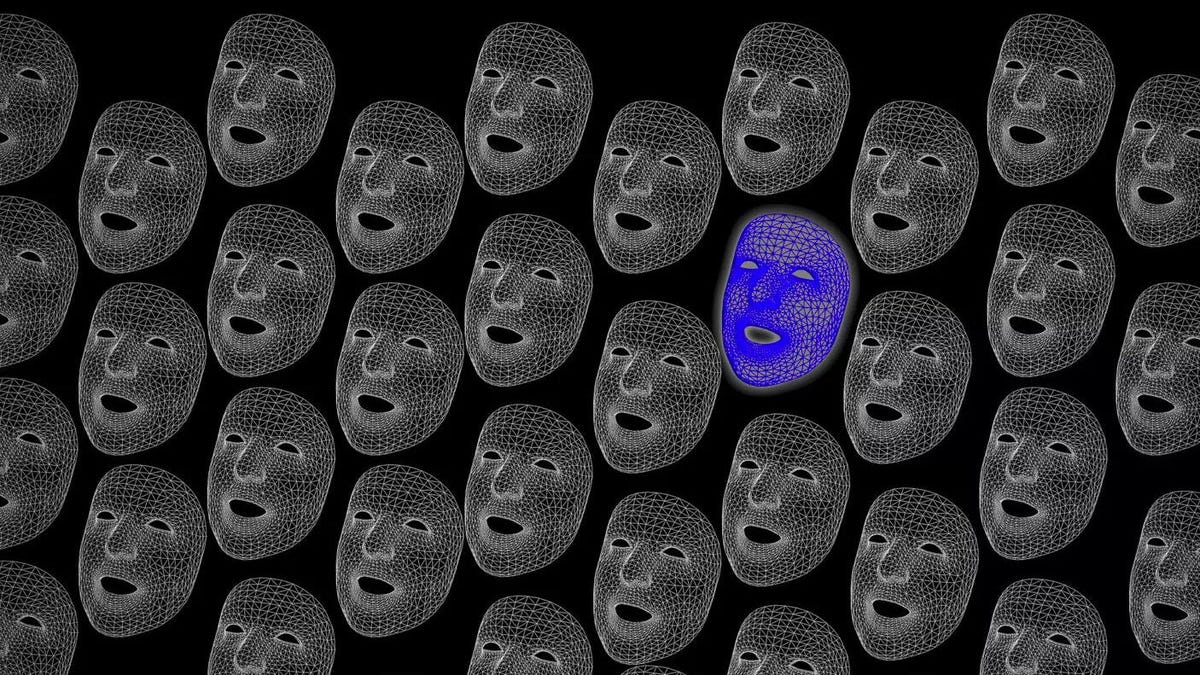Facial recognition surveillance would require warrant under bipartisan bill
Currently, there are no limits on how federal law enforcement agencies can use facial recognition.

The bipartisan bill would limit how federal agencies can use facial recognition.
Two senators introduced a bill Thursday to limit how federal law enforcement agencies can use facial recognition technology. Lawmakers have looked at the technology as a bipartisan concern, raising issues with surveillance, privacy and civil liberties surrounding facial recognition.
The Facial Recognition Technology Warrant Act was introduced by Sen. Chris Coons, a Democrat from Delaware, and Sen. Mike Lee, a Republican from Utah. The bill calls for federal agencies like the FBI and US Immigration and Customs Enforcement to obtain a warrant if they want to use facial recognition for ongoing surveillance, like tracking a person's whereabouts for longer than 72 hours.
"Right now, there is a lack of uniformity when it comes to how, when, and where the federal government deploys facial recognition technology," Coons said in a statement. "This bipartisan bill strikes the right balance by making sure law enforcement has the tools necessary to keep us safe while also protecting fundamental Fourth Amendment privacy rights."
The proposed legislation would also require any use of facial recognition to minimize the amount of data collected about people. Federal government use of facial recognition is mostly unregulated, which has allowed US agencies to amass a database of people's images.
The FBI has one of the largest facial recognition databases, with more than 641 million images of US citizens collected from driver's licenses and passports. This database is often accessed by law enforcement, without a warrant or any probable cause.
ICE has also been scanning millions of Americans' license photos for facial recognition searches.
"Facial recognition technology can be a powerful tool for law enforcement officials," Lee said in a statement. "But its very power also makes it ripe for abuse. That is why American citizens deserve protection from facial recognition abuse."
Critics argue the proposed bill doesn't limit facial recognition enough, and only provides a narrow regulation on the surveillance technology.
"It has gaping loopholes that authorize the use of facial recognition for all kinds of abusive purposes without proper judicial oversight," said Evan Greer, Fight for the Future's deputy director. "It's good to see that Congress wants to address this issue, but this bill falls utterly short."
The bill introduced Thursday wouldn't stop the use of facial recognition for identification purposes, which is how ICE and the FBI have been tapping the tech in several cases. The proposed legislation would specifically require a warrant to use facial recognition to follow a person around.
Andrew Guthrie Ferguson, author of The Rise of Big Data Policing and a law professor at the University of the District of Columbia, questioned why the legislation was targeting an aspect of facial recognition not being used currently. He noted that no US agency is conducting ongoing surveillance with facial recognition, because the technology isn't available yet.
"Why not also require a similar probable cause plus standard for face identification?" Ferguson said.
It would also apply only to federal agencies, so local police departments would still be able to use facial recognition if the bill becomes law. Local lawmakers have taken facial recognition regulations into their own hands, with cities like San Francisco, Oakland, California, and Somerville, Massachusetts, banning government use of the technology.
"The bill falls woefully short of protecting people's privacy rights and is inconsistent with existing Supreme Court precedent," Neema Singh Guliani, the ACLU's senior legislative counsel, said in a statement. Congress should put brakes on this technology, not ineffective band-aids."
The bill was introduced the same day that Fight for the Future activists took to the streets of Washington, DC, to scan the faces of passersby as a way of demonstrating the lack of facial recognition laws.
In a statement, Fred Humphries, Microsoft's vice president of US government affairs, said the company backs the bill.
"The bill provides clarity for law enforcement to be transparent about its use of facial recognition technology, both for human review when facial recognition is in use and testing for accuracy," Humphries said.
The Facial Recognition Technology Warrant Act isn't the only federal legislation proposed on limiting facial recognition. In March, two US senators introduced a bill to prevent businesses from using facial recognition without customers' consent. A group of lawmakers also introduced legislation in July to prevent facial recognition from being used in public housing.
You can read a copy of the Facial Recognition Technology Warrant Act here:
Originally published Oct. 14, 9 a.m. PT.
Updates, 9:27 a.m.: Adds Microsoft statement. 11:17 a.m.: Adds statements from ACLU and critics of the bill.

